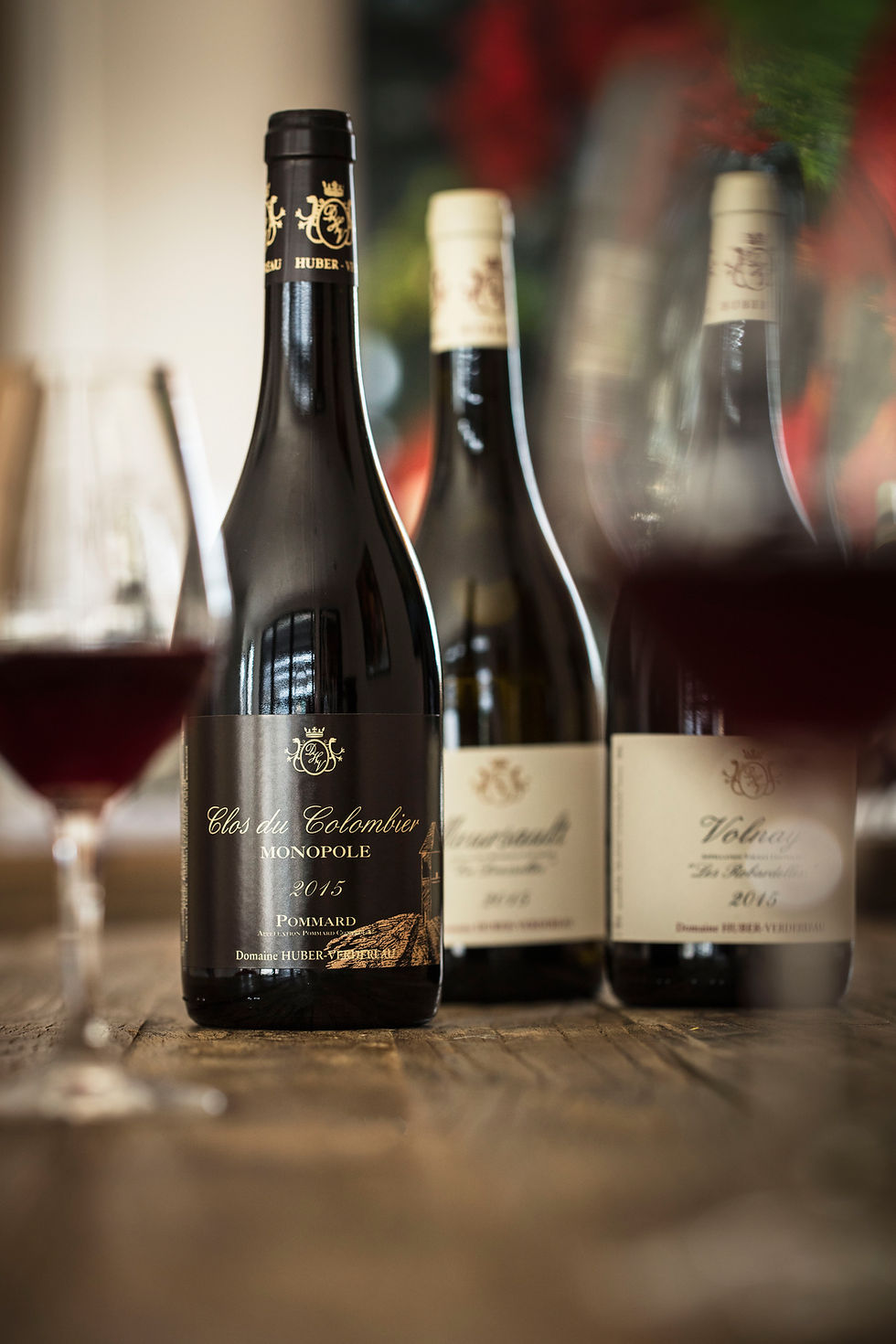



Domaine
HUBER-VERDEREAU
MEURSAULT - FRANCE

The Domaine
The Domaine HUBER-VERDEREAU was created in 1994 by Thiébault Huber, but its origin dates back to the last century.
Indeed, the vineyard activity of the exploitation comes from the Carré and the Verdereau family, and was strongly boosted by Raoul Verdereau, grandfather of Thiébault. He operated and developed the Domaine from 1928 to 1976, before sharing his properties between his two daughters.
Marie-France Verdereau, married Huber, thus inherited a little less than 3 hectares, which she rented out until 1994, being neither a winegrower nor living in Burgundy.

Alsacian by his father and Burgurdian by his mother, Thiébault Huber studied hospitality and sommelier courses in Strasbourg. He worked as a sommelier at the Moulin de Mougins in Cannes before returning to his grandfather's vineyards. After his graduation at the Lycée Viticole in Beaune, Thiébault Huber went to complete an internship with his cousin Jean-Marc Bouley in Volnay.
Then, he created the Domaine, and produced his first vintage in 1994. Little by little, he made the estate grow, which today extends over a little less than 10 hectares, spread over 7 villages, 32 plots of land and above all 22 different appellations.



Respect the Terroir

At the time of its installation and even today, Thiébault's priority for the vineyard has remained the same : the quality of the grapes over the quantity. This priority concretely results in controlling the yields, respecting the soils and implementing "the cleanest and the most respectful for the terroirs" method of cultivation, meaning biodynamics.


Thus in 1994, he makes the choice to no longer use synthetic fertilizers and herbicides, and to exclusively plough and spread organic compost in its vines. In 2001, he decides to go even further, committing himself and the Domaine in an organic cultivation and begins a training course in biodynamics in 2003 with Pierre Masson.
In 2005, the entire estate is converted in a biodynamic cultivation, with the Demeter certification controlled by Ecocert.
Its main objective with biodynamics, is to put back in harmony the soil, the plant, the man and the sky. In order to guarantee that no pesticide residue is present in its wines and soils. Residues that seriously harm health and the environment

A managed vinification
Concerning the vinification and the maturing, the method is not that much interventionist. Thiébault prefers the infusion rather than the extraction, limiting punching down and especially the use of new barrels. On average, only the Pommard and Pommard 1er cru can receive up to 25% maximum of new barrels. The Volnay systematically remain below 20% in order to preserve their finesse and elegance.
The maturations are quite short and the wines are often bottled with or without filtration depending on the year, after 8 to 10 months of maturation for the AOC regional wines and 12 to 14 months for the AOC villages and the crus.
Since 2011, in order to complete its range and offer new appellations, the Domaine has been vinifying and maturing organic grapes or wines with great care.



« For every task, my core motivation is your pleasure » Thiébault Huber

